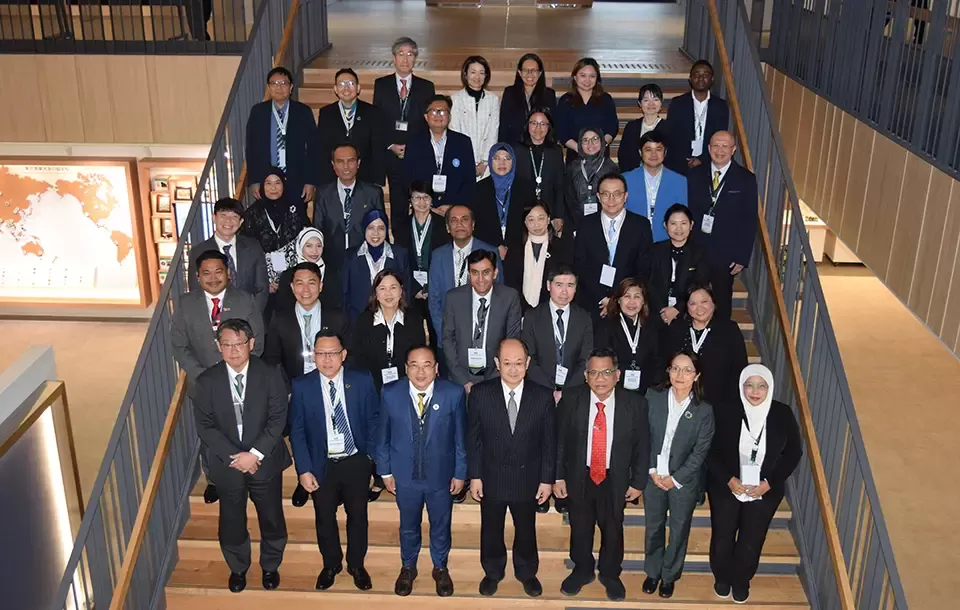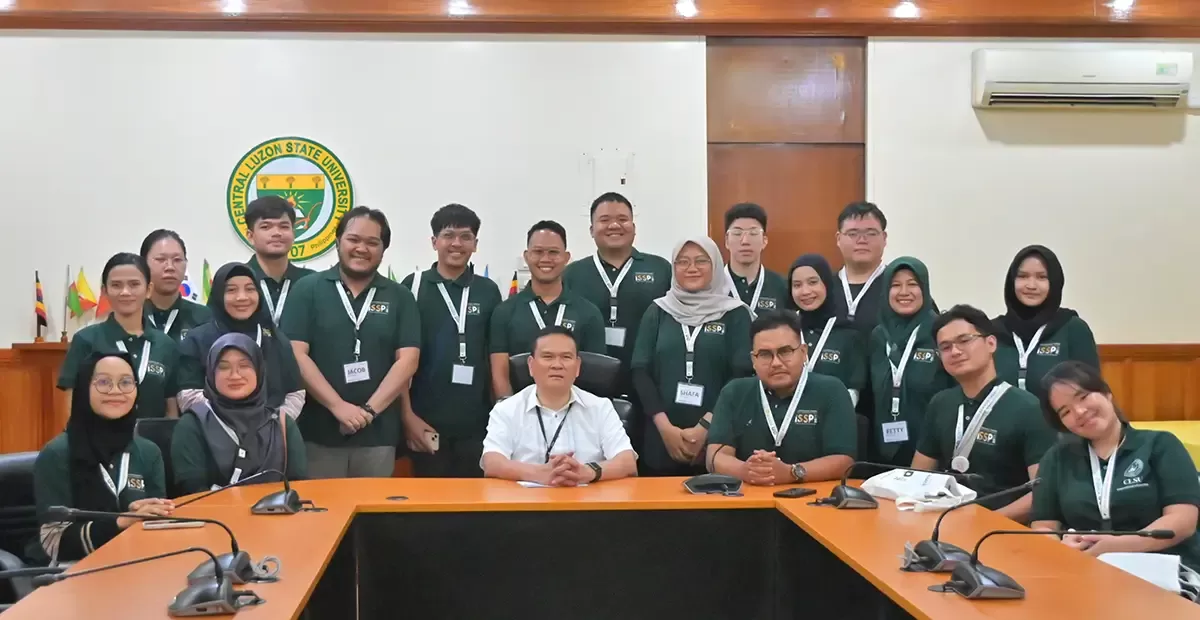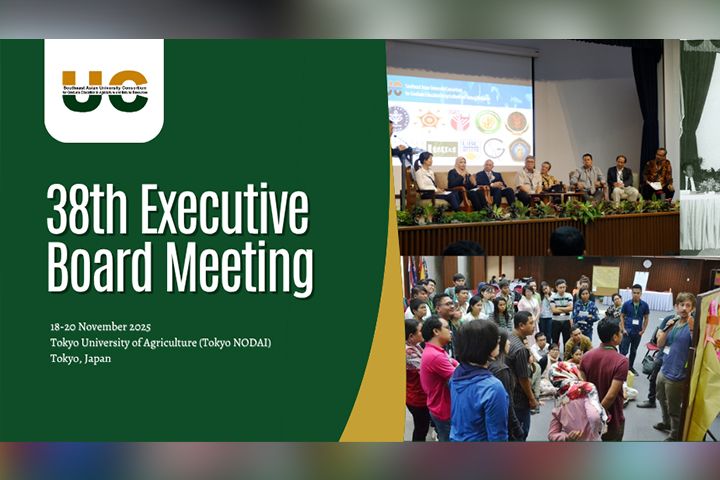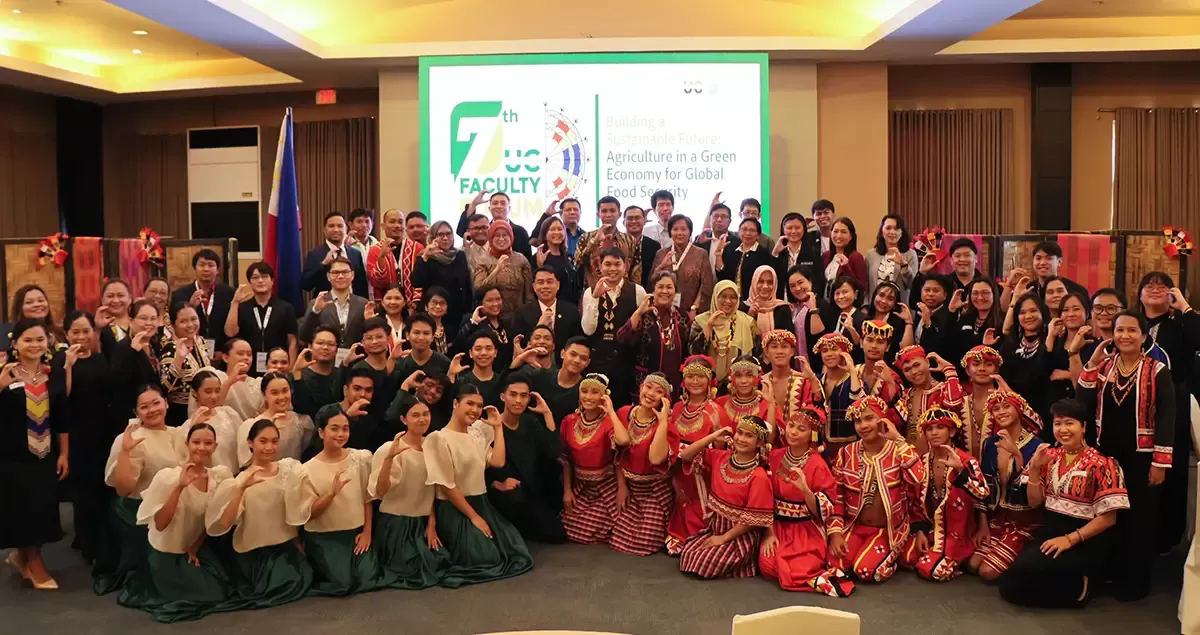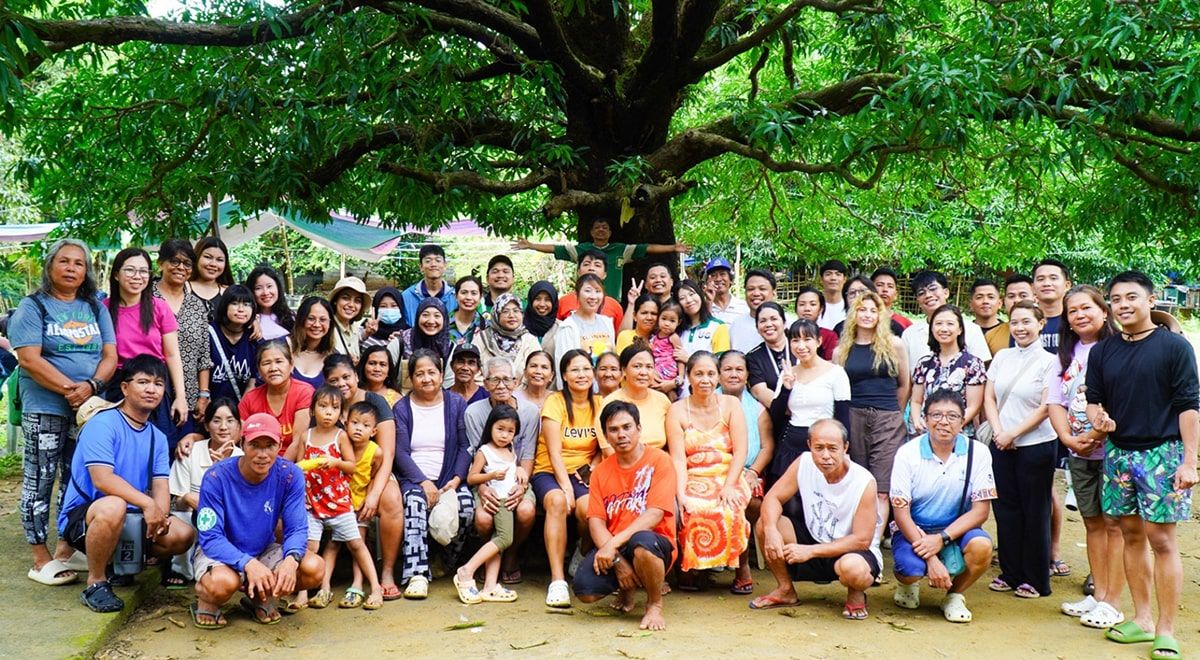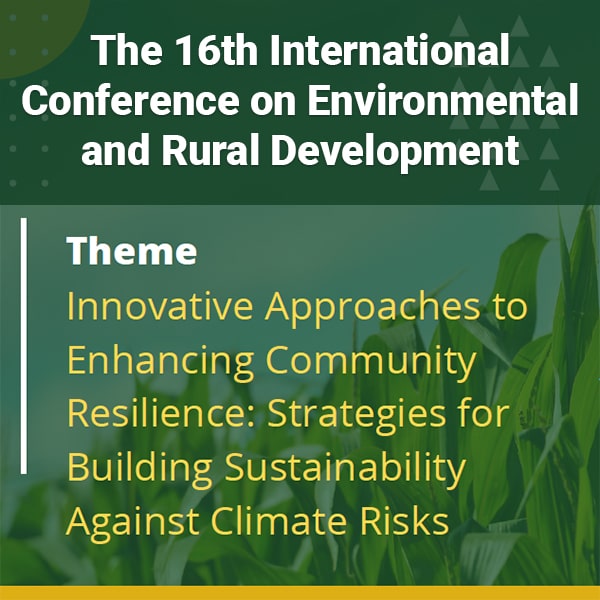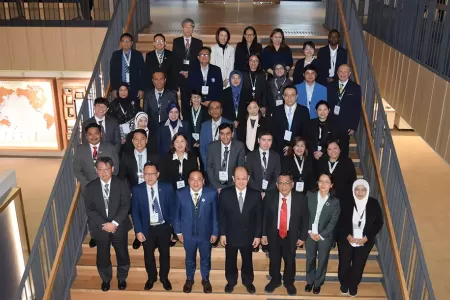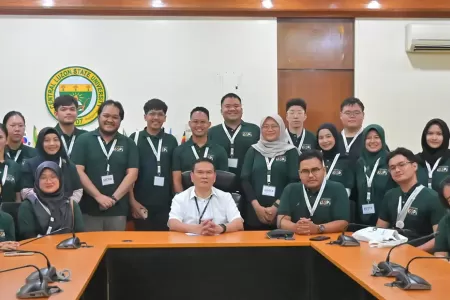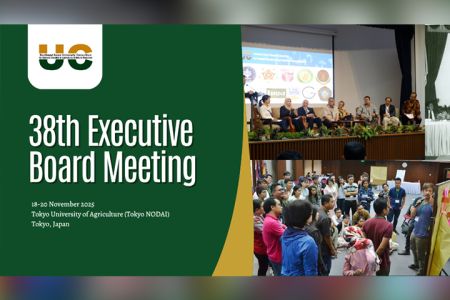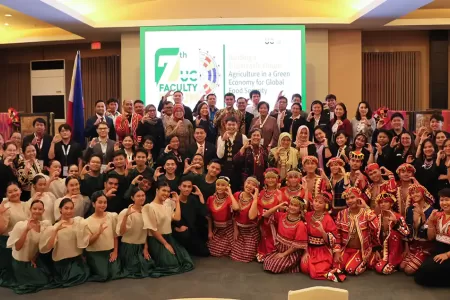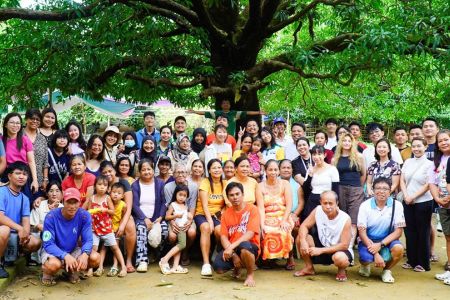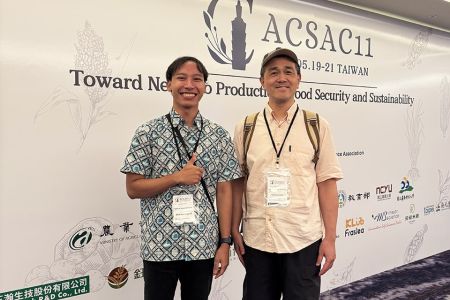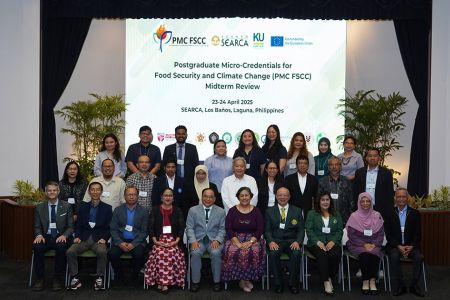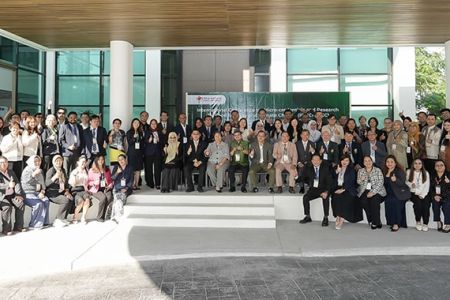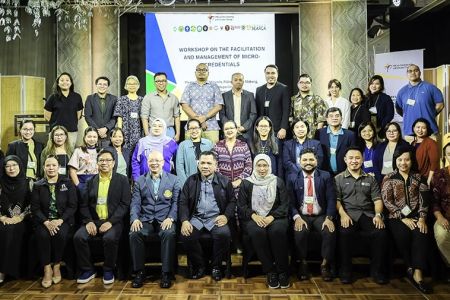University Consortium conducts first workshop for the ERASMUS+ funded project on food security and climate change
Delegates of the Southeast Asian University Consortium for Graduate Education in Agriculture and Natural Resources (UC) gathered on 18–20 March 2024 for its first workshop for the ERASMUS+ Capacity Building Project on Postgraduate Micro-Credentials for Food Security and Climate Change (PMC FSCC). The workshop venue was the Graduate School of the University of the Philippines Los Baños (UPLB).
The PMC FSCC Project aims to deliver learner-centered short-term courses through micro-credentials to address food security and climate change concerns. It also intends to utilize advances in digital technologies to develop and offer online modules that will address the twin issues of food security and climate change. Delegates from Institut Pertanian Bogor (IPB), Universitas Gadjah Mada (UGM), and Universitas Brawijaya (UB) from Indonesia, Universiti Putra Malaysia (UPM), Maejo University (MJU) and Kasetsart University (KU) from Thailand, Central Luzon State University (CLSU), and Visayas State University (VSU) from the Philippines attended the workshop. Meanwhile, SEARCA provided support as the secretariat for the UC.
The three-day activity led by UPLB under work package 2 on micro-credentials development and training reviewed the outcomes of university-led learning needs assessments and discussed course development and planning aspects. Dr. Jose V. Camacho, Jr., UPLB chancellor, underscored the role of micro-credentials in shaping the future of lifelong learning.
UPLB tapped the expertise of its faculty members from the College of Development Communication, the College of Public Affairs and Development, and the Graduate School to brainstorm the courses where micro-credentials will be developed, discuss the course structure, review the expected learning outcomes, and formulate course descriptions and learning outcomes. Insights from the scoping activities, including focus group discussions and key informant interviews, conducted by each university provided the foundation for course development. These activities involving representatives from agricultural companies, agriculture and forestry students, climate change experts, food security experts, local government units, and nongovernmental organizations provided an understanding of food security and climate change challenges and how these can be addressed.

At the end of the workshop, five topics emerged, serving as the roadmap for the development of micro-credential courses. Identified themes include food security and global environmental change, sustainable management for climate-resilient food systems, risk management and adaptation in FSCC, intelligent agricultural production, and environmental leadership and communication skills. Each major theme was also assigned its micro-credential course title, course description, study hours, prerequisites, and target students. Designated universities to lead the development of each micro-credential course were likewise identified.
For the next steps, the project partners will reconvene at KU in Thailand in April 2024 for training on micro-credential module writing and development and the packaging of online learning materials. UPLB will again lead this training under work package 2.


